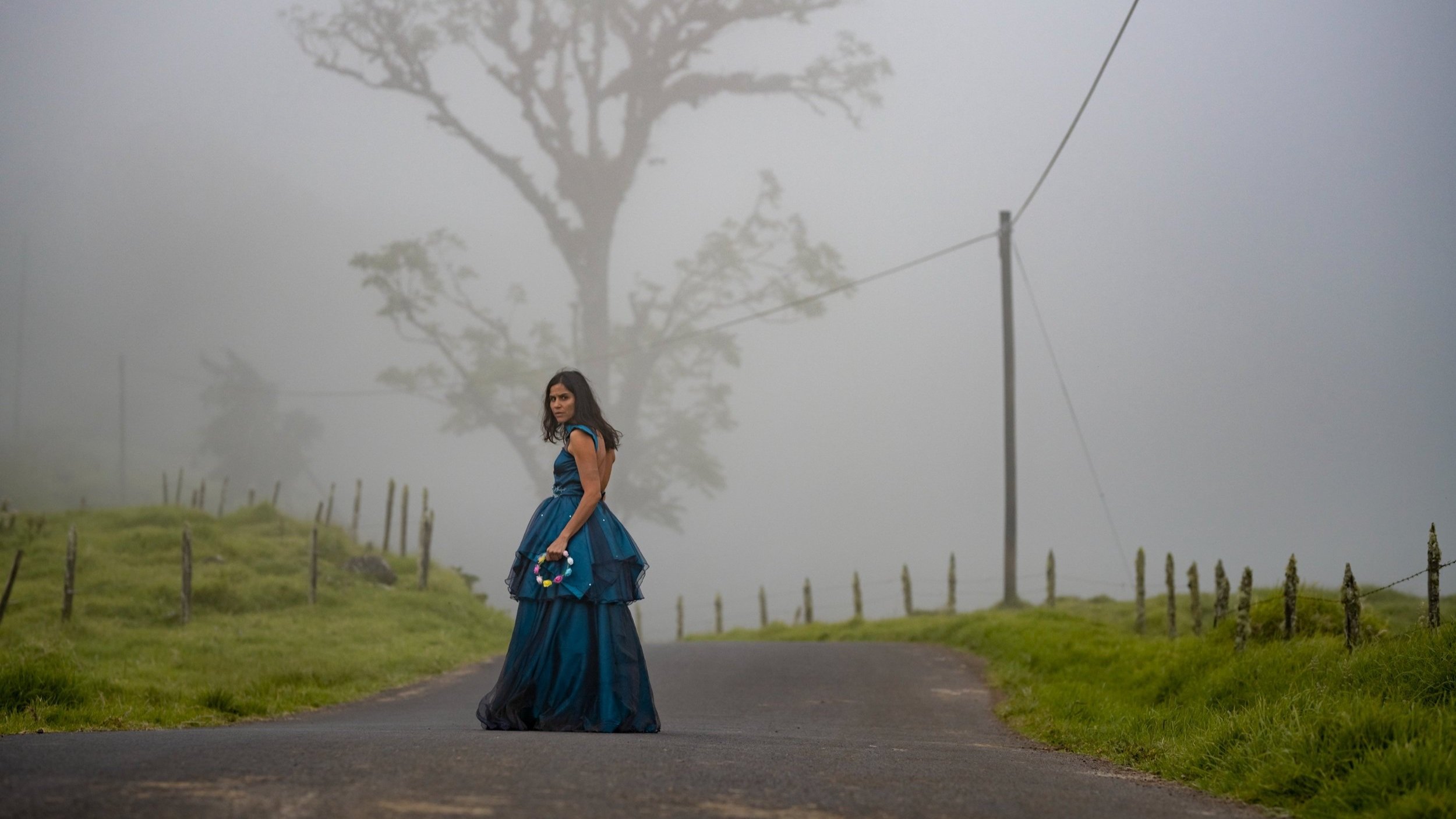Clara Sola
A forty-year-old woman undergoes a sexual awakening in a remote corner of Costa Rica.
Here we have a film that is distinctively different. In part that is down to the setting since we do not often see movies that are set in Costa Rica. However, Clara Sola is also highly original in bringing together two themes that are by no means rare in the cinema but which one would not expect to come together. One of these is a portrayal of religion as something harmful to an individual restricted by it and the other is a study of someone - in this case female - who reaches a stage in life when sexual feelings, previously beneath the surface, come to manifest themselves. Nor do the film’s surprises end there for tales of budding sexual awareness usually feature adolescents whereas here Clara (Wendy Chinchilla Araya), a woman who breaks free of religious bonds and explores her sexual feelings for the first time, is forty years old.
Clara Sola, a first feature by Nathalie Álvarez Mesén, is a film with a largely non-professional cast although Araya herself was already established as a dancer. The director also had a hand in the screenplay and, even if her inexperience may show itself through the inclusion of a number of short and rather disjointed scenes, she makes some interesting choices. First and foremost is the decision to mostly play down those elements in the material that could have been portrayed in a manner close to melodrama.
Clara’s situation is that of a woman who suffers from curvature of the spine but is treated with special respect in the Costa Rican village where she lives with her deeply religious mother, Fresia (Flor María Vargas Chavez). That is because Clara is reputed to have once seen a vision of the Virgin Mary and, in consequence, is treated as a healer with mystic powers. Fresia promotes this and is a repressive, controlling figure in her daughter’s life. But, whereas it would have been easy to show Fresia as an evil person and to make this a film patently hostile to religious beliefs, Clara Sola stops well short of that. Nevertheless, if Fresia can be regarded as sincere, the film nevertheless shows how Clara has been caged by the lifestyle imposed on her and has had to repress any sexual feelings. However, she has a niece, María (Ana Julia Porras Espinoza), who lives with them since her own mother has died and, when Clara discovers that María, who is only fifteen, is having sex with a young man named Santiago (Daniel Castañeda Rincón), she becomes jealous and less able to restrain her own feelings. As it happens, Santiago is good with horses, and Clara, who has an affinity with animals and with the natural world generally, has a special bond with a white horse named Yuca owned by her family. This brings Santiago and Clara together and he is sympathetic to her situation but dismayed when on her part this develops into a sexual attraction.
The casting of Araya proves to be an adroit move and, in an able cast, Rincón also stands out for his ability to handle the role of Santiago so well. The screenplay scores again by making him gentle and sensitive in his attitude to Clara. This is most persuasively done and, indeed, the film plays as an essentially realistic work even if other elements are present too. It is certainly the case that we are encouraged to find a parallel between Clara’s situation and that of the horse, Yuca, controlled by the family and in due course put up for sale by them much to Clara’s dismay. Similarly, Clara’s awareness of the natural world is emphasised in a way that suggests a mystical bond. All the same when it comes to finding a climax and a resolution to the tale Clara Sola does suddenly become less realistic in tone – a level of melodrama is now given its head and the close of the film reaches towards the symbolical.
Clara Sola certainly has an individuality that appeals but by the close I was not entirely persuaded that it made a coherent and effective whole. The change of style in its latter stages is not entirely convincing and the treatment of its two contrasting themes doesn't yield a totally satisfying blend. Nevertheless, there's quite enough quality here to make it a film worth investigating.
MANSEL STIMPSON
Cast: Wendy Chinchilla Araya, Ana Julia Porras Espinoza, Daniel Castañeda Rincón, Flor María Vargas Chavez, Laura Román Arguedas, Fabrizzio Josue Vallecillo Vargas, Maria Belén Román Quesada.
Dir Nathalie Álvarez Mesén, Pro Anne-Laure Guégan, Alan McConnell, Marcelo Quesada, Géraldine Sprimont, Karina Avellán Troz and Nima Yousefi, Screenplay Maria Camila Arias and Nathalie Álvarez Mesén, Ph Sophie Windqvist, Pro Des Amparo Baeza and Agustin Moreaux Ed Marie-Hélène Dozo, Music Ruben De Gheselle.
Hobab/Laïdak Films/Need Productions/Pacifica Grey/Resolve Media/Film Capital Stockholm-Peccadillo Pictures.
106 mins. Sweden/Costa Rica/Belgium/Germany/France/USA. 2021. US Rel: 1 July 2022. UK Rel: 18 November 2022. Cert. 15.


